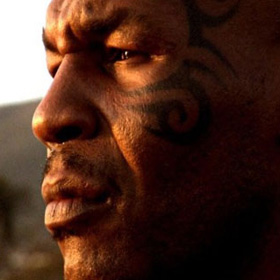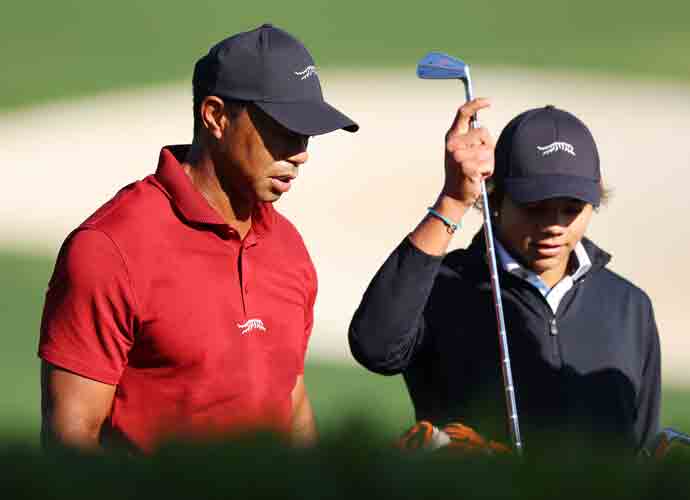Tyson

4/5
In attempting to construct a detailed picture of one of Boxing's most troubled, storied and controversial figures, director, and longtime friend of Tyson, James Toback's first decision was to remove himself from the film entirely. Opting to play the role of a suggestive voice rather than an interviewer, Toback spent most of the week long shoot (which he would then spend a year sifting through and piecing together) floating around off camera, often behind Tyson, offering only subtle prompts which the complex and deeply conflicted Tyson would use as a jumping off point for an extended monologue of self-examination. The result is a fractured, almost stream-of-consciousness confessional that while running along the lines of a conventional linear biography is peppered with tangents of unfettered chaos, which oddly mirrors the man’s immensely fascinating and somewhat tragic story.
Electing to forgo the typical talking heads fare, believing quite rightly that no one could tell Tyson's story better than he could, Toback simply allows Mike to interpret the events of his life to the camera and offer up a trance-like self-portrait. Opening with voiceover as Tyson walks along down a deserted beach at sunset, Toback moves to split screen with overlapping takes and looped sound bites of Tyson talking about the "chaos of the brain" showing him to be a thinker and a poet that belies his thuggish public persona, and a man whose entire character was constructed as a form of self-defense against his own demons.
Bullied at school and robbed on the streets of Brooklyn, growing up Tyson was afraid of the intimidation and humiliation. Detailing his affection for pigeons, Tyson recounts how a neighborhood thug broke his favorite bird's neck and threw it his feet. Toback contrasts an aged and regretful Tyson reflecting on his youth as a petty thief robbing drug dealers while his street friends are all either dead, in jail or strung out on drugs with archive footage of wide-eyed younger Tyson detailing the same story some twenty-years earlier with an eager enthusiasm. A tearful choked up Tyson goes on to tell how a spell in juvenile hall brought him to the attention of Cus D'Amato, the mentor, surrogate father, and man who would eventually mold him into one of the most explosive fighters the boxing world had ever seen.
Laying his soul bare Tyson details the many highs and lows of his colorful, if controversial fighting career: His joy at shattering the knockout record at the junior Olympics; how he was so scared the night of his first amateur bout he went outside beforehand and almost hailed a taxi to take him home. Remarkably Tyson believes it was not his power or his speed that was key to his success, merely that he was happy in what he was doing and in a good place mentally. According to Tyson, the fighter who triumphs is not the one who is most intense, but one who is most relaxed. Recollecting his global jaunts, meetings with world leaders – a parade in Moscow – this is a man grateful for everything he had and ashamed that as what he calls "a young dumb, kid" he wasn't able to better handle it. His reverential tributes to D'Amato, who he can barely mention without coming to tears are contrasted to his summation of boxing promoter Don King who he refers to as "a slimy, reptilian motherfucker who would kill his own grandmother for a dollar."
A man who started at the lowest depths, rose to unimaginable heights, crashed, rose back, and then crashed again, Tyson is a walking slew of contradictions; smart but not educated, philosophical but inarticulate, iron-willed yet somewhat naive and deeply impressionable, his raspy, wheezy voice (he has suffered respiratory complaints most of his life) never reconcile with the public image of the unbalanced brute he came to be known as. From a glittering reign as the heavyweight champion of the world to public disgrace and three years in prison on a rape count he still flatly denies, Tyson is a person who has experienced the loftiest peaks and the deepest valleys of life and come out the other side. Staring down middle-age, he feels quietly optimistic: "By the way, I'm also the proud father of six kids," he cheerily mentions around the eighty-minute mark almost as an afterthought and if he has any regrets it's that he wishes he has been "a little bit smarter" and that he feels like a man "old too soon, smart too late."
But what is most striking is the crystal-clear sense of self-awareness that Tyson seems privileged to. He is painfully aware of every mistake he's ever made; his numerous illicit liaisons, his catastrophic financial mismanagement, his megalomaniacal tendencies and his love/hate relationship with the sport that made him a star and then broke his spirit. While Toback's film never makes any attempt to be anything close to an even-handed approach, there is never any pity in his pathos. This is not a puff-piece, nor does it ever come over like a calculated PR exercise. Tyson simply narrates his own story and invites us to render our own judgment on what is, love him or hate him, one hell of a compelling story.
Starring: Mike Tyson
Director: James Toback
Runtime: 88 Minutes
Distributor: Sony Picture Classics
Rating: R
RELATED ARTICLES
Get the most-revealing celebrity conversations with the uInterview podcast!







Leave a comment